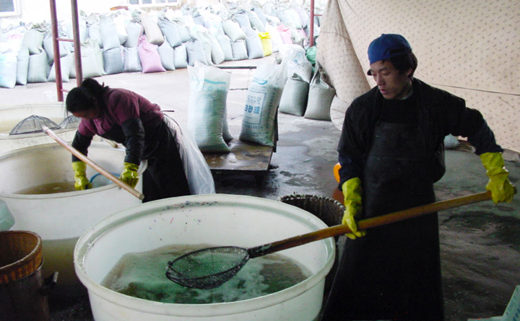Keeping the momentum going on recycling innovation: MBA talks plastics recycling with UK MP Vince Cable
As China’s ‘Operation Green Fence’ continues, causing chaos for some Western exporters and highlighting the fragility of the global recycling market, The Guardian recently posed the question: ‘Could China’s ‘Green Fence’ prompt global recycling innovation?’.
The article highlights China’s huge market monopoly, explaining that the country imports 70% of the world’s 500 million tonnes of e-waste and 12 million tonnes of plastic waste annually. Given China’s dominant position, any sudden policy changes from Beijing stand to rock the global recycling trade, with ‘Operation Green Fence’ a good case in point.
Speaking at the BIR’s recent convention in Shanghai, Renwu Cai, general manager of MBA’s joint venture recycling facility in Ghangzhou, told the Bureau of International Recycling (BIR) Plastics Committee that the ‘Green Fence’ campaign was designed to ‘crack down on illegal enterprises’, although he acknowledged that even law-abiding companies had been hit by customs clearance delays and additional costs.
So how can Western countries reduce their reliance on the cost-effective practice of exporting waste, The Guardian asks, particularly as the top waste exporters (Europe, the US, Japan and Hong Kong) have a lower demand for secondary raw materials and lack the infrastructure to process more waste at a domestic level.
Creating the right conditions for Western recycling to thrive
MBA’s Mike Biddle believes that a wave of innovation and investment in recycling technology is needed to catalyse successful domestic recycling markets in the West. This could include more sophisticated handling and treatment techniques and more high-technology processing plants.
However, creating the right market conditions for domestic recycling to thrive will require government support, hence MBA’s discussion with Vince Cable, the UK’s Secretary of State for the Department of Business, Innovation and Skills. With planning permission a major obstacle to creating new recycling facilities in the UK, our CEO Nigel Hunton spoke to Mr Cable and his colleague John Mann about how this kind of investment could be incentivised.
Nigel explained that ‘Operation Green Fence’ is having a positive impact for businesses with high-tech plastics recycling plants in the UK, such as MBA. He also underlined the significant investments made by MBA and EMR in the country’s recycling infrastructure and highlighted that the two companies will, in 2014, have achieved a recycling rate of 99% of all recyclable waste processed for ELV’s (End of Life Vehicles), ahead of the government’s 2015 – 95% target. The UK has a real opportunity to lead the world in recycling, Nigel believes, and that’s why he is asking Vince Cable to consider offering zero VAT on products made from recycled plastics.

Smarter waste management and sustainable design
Beyond the expansion of Western recycling infrastructure, smarter waste management and tighter import and export controls can also help to increase waste quality, asserts The Guardian. The BIR has recently published guidelines on environmentally sound waste management for recycling professionals, while in the UK, Defra is introducing new regulations this autumn requiring recycling facilities to measure the quality of recyclables.
Similarly, manufacturers must be a lot more proactive in creating sustainable designs and specifying recycled materials over virgin raw materials. Tapping into the 10 million tonnes of plastic waste discharged into the sea each year is just one option, an approach adopted by our client Electrolux and Ecover.
Investing in end uses for secondary raw materials is critical to the realistic expansion of Western recycling facilities, according to Bob Ensinger of the Institute of Scrap Recycling Industries.
Meanwhile, the US EPA has created a Sustainable Materials Management roadmap to 2020, and says education and stronger public and private partnerships are required to advance recycling, reuse and waste reduction in the United States.
While in the short to medium term, concludes The Guardian, exporting waste abroad looks set to continue, a real focus on recycling innovation and sustainable design could boost Western recycling industries and economies.
To read the full Guardian Sustainable Business article, please click here.

